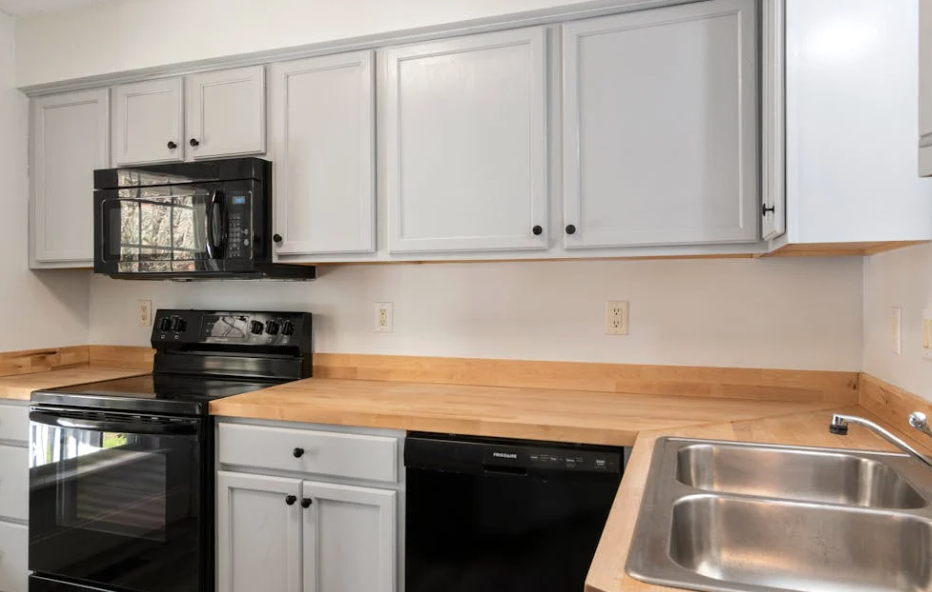The kitchen has long been the heart of the home, and over the years, the appliances within it have undergone a remarkable transformation. From humble beginnings to the advent of smart technology, the evolution of kitchen equipment has revolutionized the way we cook, prepare meals, and interact with our living spaces. In this article, we’ll take a journey through time to explore the progression of kitchen appliances from traditional to smart, highlighting the innovations that have shaped modern culinary experiences.
Traditional Kitchen Appliances
1. Stoves and Ovens
In the early days, cooking was primarily done over an open flame or in rudimentary hearths. The invention of the stove revolutionized cooking by providing a controlled heat source for preparing meals. Initially fueled by wood or coal, stoves evolved to run on gas and eventually electricity, offering greater convenience and safety. Similarly, ovens transitioned from brick and mortar hearths to enclosed chambers with precise temperature controls, allowing for more consistent baking and roasting.
Smart technology has also led to advancements in energy efficiency and sustainability in the kitchen. Smart appliances equipped with sensors and algorithms can optimize energy usage, reduce waste, and lower utility bills. For example, smart refrigerators can adjust cooling settings based on usage patterns, while smart dishwashers can optimize water usage and cycle times for maximum efficiency.
2. Refrigerators
Before the invention of refrigeration, food preservation relied on techniques like salting, smoking, and fermentation. The introduction of mechanical refrigeration in the late 19th century revolutionized food storage by providing a reliable way to keep perishable items cold. Early refrigerators were large, bulky, and often noisy, but advancements in technology led to more efficient and compact designs over time, making them a staple in modern kitchens.
3. Dishwashers
Handwashing dishes was a time-consuming and labor-intensive task until the invention of the dishwasher. The first mechanical dishwashers appeared in the late 19th century, but they were primarily used in commercial settings. It wasn’t until the mid-20th century that dishwashers became commonplace in residential kitchens. These early models were simple and lacked the advanced features of modern dishwashers but still offered significant time and labor savings.
4. Small Kitchen Appliances
From blenders and mixers to toasters and coffee makers, small kitchen appliances have played a crucial role in simplifying meal preparation and beverage brewing. Many of these appliances have been around for decades, evolving from manual to electric versions with improved performance and convenience. While their basic functions remain the same, technological advancements have led to the development of specialized features and automation capabilities.
Smart Kitchen Appliances
1. Connectivity and Integration
The rise of the Internet of Things (IoT) has paved the way for a new era of smart kitchen appliances that are connected, intuitive, and seamlessly integrated into the modern home. Smart refrigerators equipped with touchscreens and cameras allow users to view their contents remotely, track expiration dates, and even place grocery orders. Similarly, smart ovens and stoves can be controlled via smartphone apps, enabling users to monitor cooking progress and adjust settings from anywhere.
Before the invention of refrigeration, food preservation relied on techniques like salting, smoking, and fermentation. The introduction of mechanical refrigeration in the late 19th century revolutionized food storage by providing a reliable way to keep perishable items cold. Early refrigerators were large, bulky, and often noisy, but advancements in technology led to more efficient and compact designs over time, making them a staple in modern kitchens.
2. Voice Control and Automation
Voice-activated assistants like Amazon Alexa and Google Assistant have further enhanced the functionality of smart kitchen appliances by enabling hands-free control and automation. Users can command their smart devices to preheat the oven, brew coffee, or adjust the temperature of the refrigerator with simple voice commands. This level of convenience and automation streamlines tasks and enhances the overall cooking experience.
One of the most exciting aspects of smart kitchen appliances is their ability to personalize and customize the cooking experience. Smart ovens can suggest recipes based on available ingredients, dietary preferences, and cooking skill level. Smart coffee makers can brew the perfect cup of coffee to individual taste preferences, adjusting factors like brew strength and temperature. These personalized features cater to the diverse needs and preferences of modern consumers.
3. Energy Efficiency and Sustainability
Smart technology has also led to advancements in energy efficiency and sustainability in the kitchen. Smart appliances equipped with sensors and algorithms can optimize energy usage, reduce waste, and lower utility bills. For example, smart refrigerators can adjust cooling settings based on usage patterns, while smart dishwashers can optimize water usage and cycle times for maximum efficiency.
4. Personalization and Customization
One of the most exciting aspects of smart kitchen appliances is their ability to personalize and customize the cooking experience. Smart ovens can suggest recipes based on available ingredients, dietary preferences, and cooking skill level. Smart coffee makers can brew the perfect cup of coffee to individual taste preferences, adjusting factors like brew strength and temperature. These personalized features cater to the diverse needs and preferences of modern consumers.
Conclusion
The evolution of kitchen appliances from traditional to smart reflects the ongoing quest for innovation, efficiency, and convenience in the culinary world. From the invention of basic stoves and refrigerators to the emergence of connected, intelligent devices, each advancement has contributed to making cooking and meal preparation easier, more enjoyable, and more sustainable.
As smart technology continues to evolve, the possibilities for the kitchen of the future are virtually limitless. Whether it’s seamlessly integrated appliances that anticipate our needs or personalized cooking experiences tailored to individual preferences, the future of kitchen equipment promises to be exciting and transformative. As we embrace these advancements, let us not forget the humble beginnings and enduring legacy of the traditional kitchen appliances that laid the foundation for the modern culinary landscape.
The evolution of kitchen appliances from traditional to smart reflects the ongoing quest for innovation, efficiency, and convenience in the culinary world. From the invention of basic stoves and refrigerators to the emergence of connected, intelligent devices, each advancement has contributed to making cooking and meal preparation easier, more enjoyable, and more sustainable.
Check the latest article on Restaurants in Woodlands!



